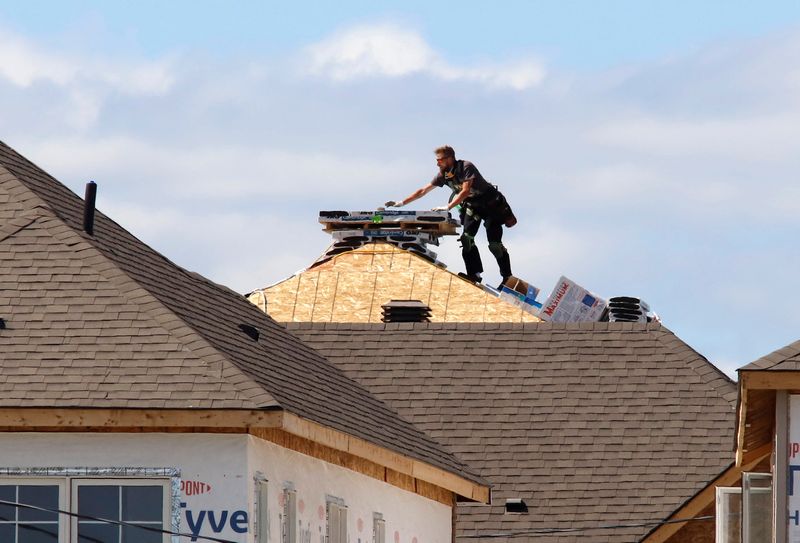By Julie Gordon
OTTAWA (Reuters) - Renters are increasingly likely to occupy newer homes in Canada, suggesting investors may be displacing owner-occupiers as the country looks to build its way out of an affordability crisis, census data from Statistics Canada showed on Wednesday.
Some 40.4% of homes built between 2016 and 2021 are occupied by renters, according to Statscan's 2021 census, compared with 28.5% of housing built between 2011 and 2015. At the same time, Canada's homeownership rate fell to 66.5% from 69.0% in 2011.
This comes as condominium construction surged, especially in Canada's largest cities. In Toronto, 55.8% of homes built in the last five years were condos, with the share in Vancouver and Montreal also above 50%, the data showed.
While cities may approve new condos hoping to create more housing for first-time buyers, the data suggests investors are increasingly benefiting, said Andy Yan, director of the City Program at Simon Fraser University in Vancouver.
"A new housing stock intended to be for first-time homebuyers became the domain for investors looking for their second or third homes," he said, adding that as end-users compete with investors for housing it pushes up prices.
The price of a typical home in Canada more than doubled from C$341,300 ($254,968) in January 2011 to C$775,100 in December 2021, according to data from the Canadian Real Estate Association.
Shelter costs for renters jumped 17.6% over the census period, said Statscan, while owner shelter costs rose 9.7%.
Canada's Liberal-led Government has pledged to build 3.5 million homes over the next decade to help ease an affordability crisis, while also funding various programs aimed at helping first-time buyers getting into the market.

More broadly, the census found that over a third of all condos in Canada were rented out in 2021 and more than half of condos in the country's three largest were rented. Millennials make up the largest share of condo dwellers, said Statscan.
($1 = 1.3386 Canadian dollars)